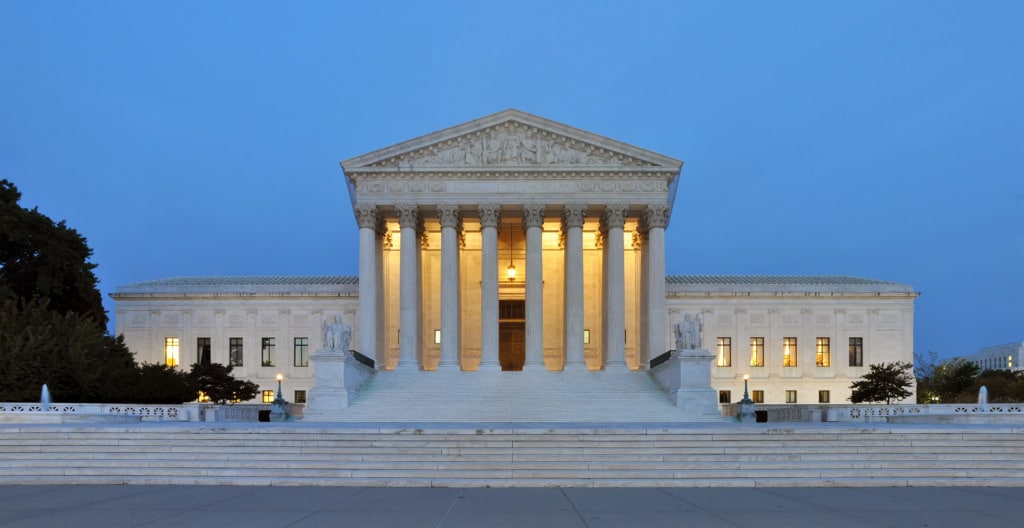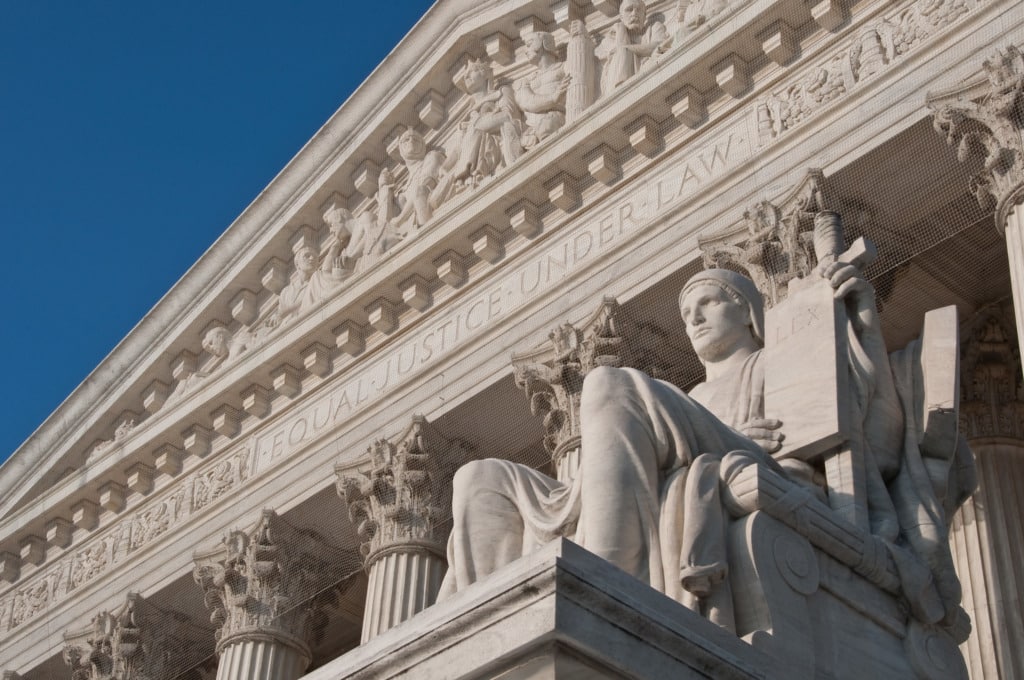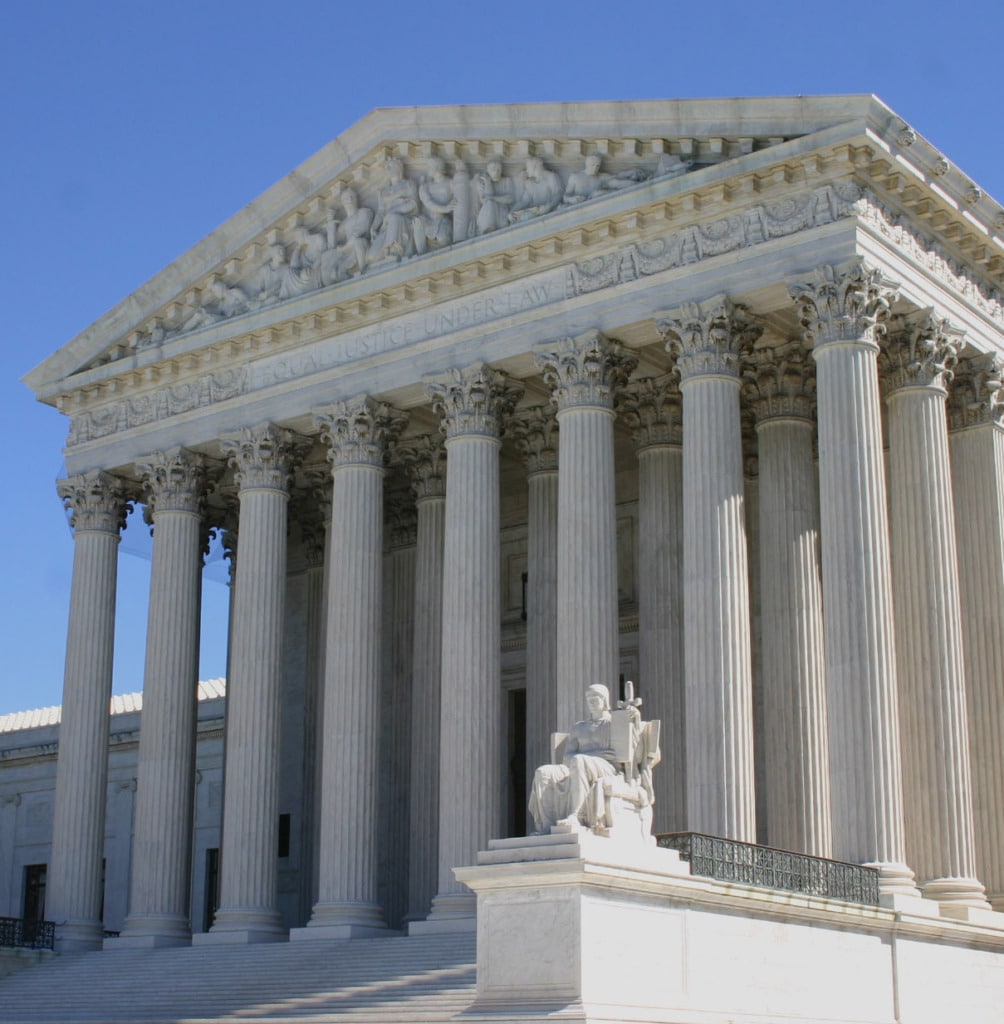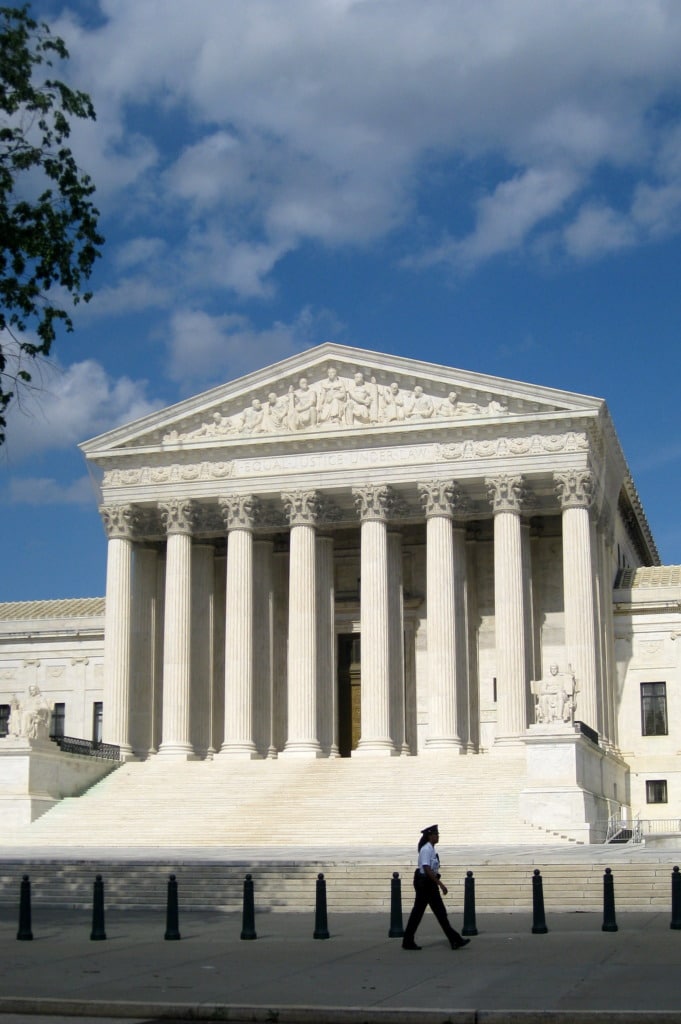Supreme Court Decides Fuld v. PLO
The Supreme Court today unanimously reversed the Second Circuit in Fuld v. Palestine Liberation Organization, holding that the personal jurisdiction provisions of the Promoting Security and Justice for Victims of Terrorism Act (PSJVTA) do not violate the Fifth Amendment’s Due Process Clause. Chief Justice Roberts wrote the opinion, which was joined by Justices Alito, Sotomayor,…
Continue ReadingThe Personal Jurisdiction Case With Everything
In one of my favorite moves, The Princess Bride, the grandfather describes the story as having everything: “Fencing! Fighting! Revenge! Giants! Chases! Escapes! True love! Miracles!” This scene popped into my head when I was reading a recent decision by the Court of Appeals of Texas (Fourteenth District). That opinion, Certain Underwriters at Lloyd’s London…
Continue ReadingThe Fuld Oral Arguments as Haiku
Justice Roberts: This is all just words! It sounds like a grab bag. Please: Give us a clear test. Justice Thomas: PLO, PA? Are these things “persons” really? And do they have rights? Justice Alito: Why is this unfair? Don’t the defendants have an Office in New York? Justice Sotomayor: We still need…
Continue ReadingOral Argument Recap: Fuld v. PLO
On Tuesday, the Supreme Court heard oral argument in Fuld v. Palestine Liberation Organization. The question presented is whether the Promoting Security and Justice for Victims of Terrorism Act of 2019 (PSJVTA) violates the Fifth Amendment’s Due Process Clause by declaring that the Palestine Liberation Organization (PLO) and the Palestinian Authority (PA) have consented to…
Continue ReadingFuld v. PLO: Argument Day!
Today, the Supreme Court is hearing oral argument in Fuld v. Palestinian Liberation Organization. The petition asks whether the Promoting Security and Justice for Victims of Terrorism Act of 2019 (PSJVTA) violates the Fifth Amendment’s Due Process Clause by declaring that the PLO has consented to personal jurisdiction based on specified conduct. TLB’s prior coverage…
Continue ReadingFuld Preview: Professor Briefs
Next week, the Supreme Court will hear oral argument in Fuld v. Palestinian Liberation Organization. Fuld raises two interrelated issues: (1) Does the Promoting Security and Justice for Victims of Terrorism Act (PSJVTA) provide consent-based personal jurisdiction consistent with Mallory v. Norfolk Southern Railway Co.?; and (2) What are the differences (if any) between the…
Continue ReadingFuld Preview: AALS Panel on Mallory and More
Next week, the Supreme Court will hear oral argument in Fuld v. Palestinian Liberation Organization. TLB’s prior coverage of Fuld can be found here. Among the key issues in Fuld is whether the Promoting Security and Justice for Victims of Terrorism Act’s scheme for consent-based personal jurisdiction is constitutional. In 2023, the Supreme Court decided…
Continue ReadingDevas v. Antrix: Headed back to the Ninth Circuit?
On Monday, the Supreme Court held oral argument in Devas v. Antrix to decide “whether plaintiffs must prove minimum contacts before federal courts may assert personal jurisdiction over foreign states sued under the Foreign Sovereign Immunities Act (FSIA).” Minimum contacts between the defendant and the United States might be required as a matter of statutory…
Continue ReadingForeign States are “Persons”: CC/Devas v. Antrix Amicus Brief
The Supreme Court may soon resolve an important constitutional question: whether foreign states are “persons” entitled to Fifth Amendment due process. For those who engage seriously with the text, history, and structure of the Constitution, there is a ready answer: yes, foreign states are “persons.” The scope of the “process” to which foreign states are…
Continue ReadingAll I Want for Christmas (Forum Selection Clause Edition)
As the holidays approach, TLB editors have prepared lists of things that they wish courts in the United States would do differently on the subject of transnational litigation. In this post, I revisit one of my favorite subjects—forum selection clauses—to identify some reforms that would make my Christmas exceptionally merry. 1. Stop Asserting Personal Jurisdiction…
Continue Reading




